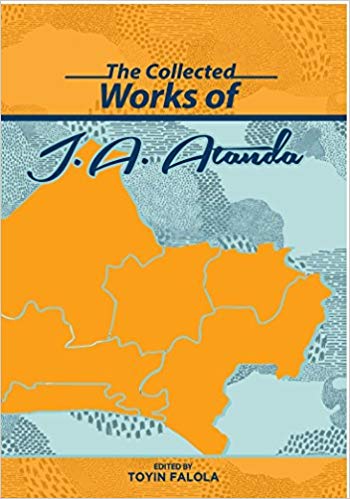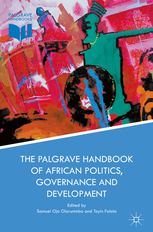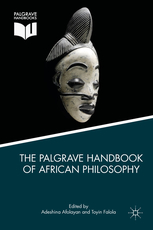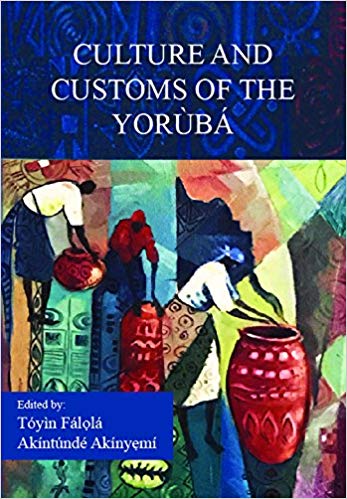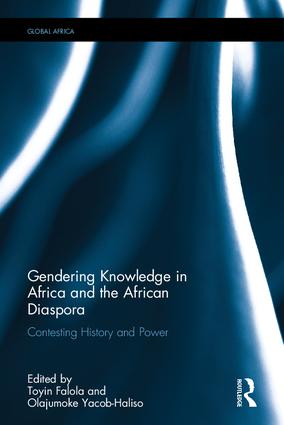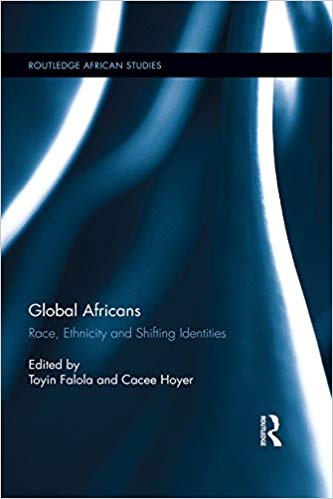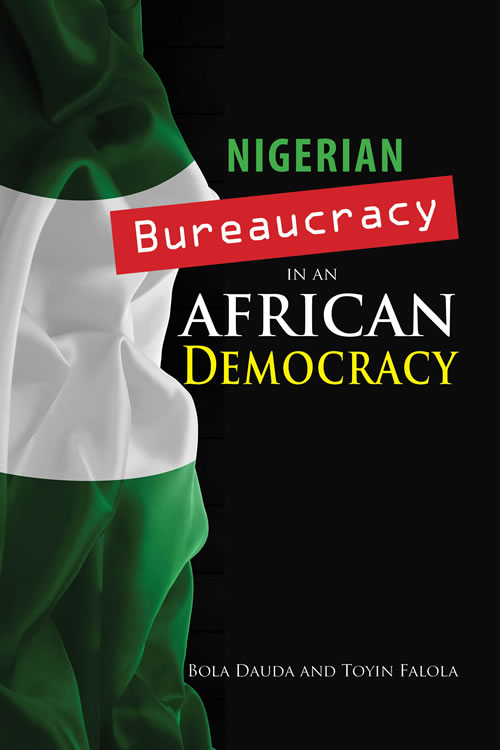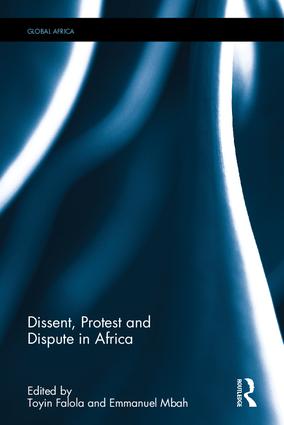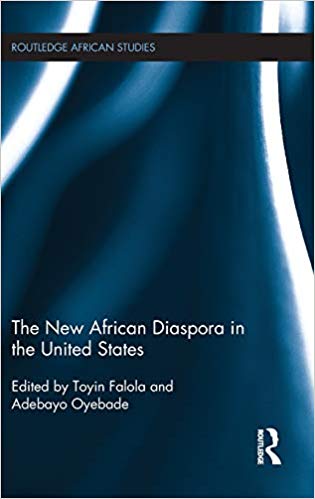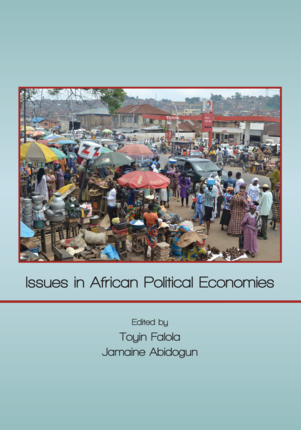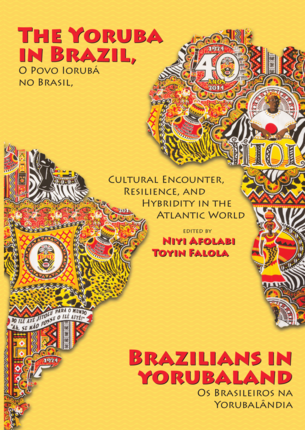The Collected Works of J. A. Atanda
Edited by Toyin Falola
This collection of the essays and books of the late Professor J. A. Atanda covers the broad spectrum of his work on the Yoruba, the Old and New Oyo Empire, colonial Nigeria and Buganda, and reflective essays on a newly independent Nigeria. Divided into five parts according to each of these themes, The Collected Works of J. A. Atanda is unique for encompassing the scope, breadth and depth Of the scholarship of Professor Atanda over the course of some thirty years. The collection definitively represents the contributions of Professor Atanda to African scholarship in general and fortifies our memory of the meaning of that scholarship.
The Palgrave Handbook of African Politics, Governance and Development
Edited by Samuel Ojo Oloruntoba and Toyin Falola
This handbook constitutes a single collection of well researched articles and essays on African politics, governance and development from the pre-colonial through colonial to the post-colonial eras. Over the course of these interconnected periods, African politics have evolved with varied experiences across different parts of the continent. As politics is embedded both in the economy and the society, Africa has witnessed some changes in politics, economics, demography and its relations with the world in ways that requires in-depth analysis. This work provides an opportunity for old and new scholars to engage in the universe of the debate around African politics, governance and development and will serve as a ready reference material for students, researchers, policy makers and investors that are concerned with these issues.
The Palgrave Handbook of African Philosophy
Edited by Adeshina Afolayan and Toyin Falola
This handbook investigates the current state and future possibilities of African Philosophy, as a discipline and as a practice, vis-à-vis the challenge of African development and Africa’s place in a globalized, neoliberal capitalist economy. The volume offers a comprehensive survey of the philosophical enterprise in Africa, especially with reference to current discourses, arguments and new issues—feminism and gender, terrorism and fundamentalism, sexuality, development, identity, pedagogy and multidisciplinarity, etc.—that are significant for understanding how Africa can resume its arrested march towards decolonization and liberation.
Culture and Customs of the Yoruba
Edited by Toyin Falola and Akintunde Akinyemi
This innovative anthology presents an interdisciplinary approach to Yorùbá culture and customs. Written by Yorùbá experts on all continents, the seventy-five chapters in the volume employ a variety of multi-faceted perspectives to provide a detailed study of the Yorùbá people with insights from anthropology, arts, language and linguistics, literature, history, religion, sociology, philosophy, psychology, criminology, law, technology, medicine, pharmacy, engineering, economics, education, political science, music, theater, popular culture, cultural studies, migration and diaspora studies, gender, etc. Each chapter addresses the changes that have taken place in traditional culture. This blend between traditional culture and modifications to such culture gives a balanced and authentic picture of what can be regarded as culture and customs in present-day Yorùbá society.
Gendering Knowledge in Africa and the African Diaspora: Contesting History and Power
Edited by Toyin Falola, Olajumoke Yacob-Haliso
Gendering Knowledge in Africa and the African Diaspora addresses the question of to what extent the history of gender in Africa is appropriately inscribed in narratives of power, patriarchy, migration, identity and women and men’s subjection, emasculation and empowerment. The book weaves together compelling narratives about women, men and gender relations in Africa and the African Diaspora from multidisciplinary perspectives, with a view to advancing original ways of understanding these subjects.
The chapters achieve three things: first, they deliberately target long-held but erroneous notions about patriarchy, power, gender, migration and masculinity in Africa and of the African Diaspora, vigorously contesting these, and debunking them; second, they unearth previously marginalized and little known his/herstories, depicting the dynamics of gender and power in places ranging from Angola to Arabia to America, and in different time periods, decidedly gendering the previously male-dominated discourse; and third, they ultimately aim to re-write the stories of women and gender relations in Africa and in the African Diaspora. As such, this work is an important read for scholars of African history, gender and the African Diaspora.
Global Africans: Race, Ethnicity and Shifting Identities
Edited by Toyin Falola and Cacee Hoyer
"Black," "African," "African descendant" and "of African heritage," are just some of the ways Africans and Africans in the diaspora (both old and new) describe themselves. This volume examines concepts of race, ethnicity, and identity as they are ascribed to people of colour around the world, examining different case studies of how the process of identity formation occurred and is changing.
Contributors to this volume, selected from a wide range of academic and cultural backgrounds, explore issues that encourage a deeper understanding of race, ethnicity and identity. As our notions about what it means to be black or of African heritage change as a result of globalization, it is important to reassess how these issues are currently developing, and the origins from which these issues developed.
Global Africans is an important and insightful book, useful to a wide range of students and scholars, particularly of African studies, sociology, diaspora studies, and race and ethnic studies.
Nigerian Bureaucracy in an African Democracy
Edited by Bola Dauda and Toyin Falola
Although Nigeria adopted the American presidential system in 1979, bureaucracy-democracy relations continue to be shrouded with seven fundamental historical issues that are unique to Nigeria. These issues are its colonial heritage, the prevalent diarchy of the civil and the military bureaucracies for more than half of the 50 years of Nigerian independence, the inherited British Westminster parliamentary traditional dichotomy between politics and administration, the inherent powerful nature of bureaucracy, the threat to Nigerian nationhood, intractable challenge of the Nigerian multiethnic nationalities competing for resources, and the double-edged sword of bureaucracy
Dissent, Protest and Dispute in Africa
Edited by Toyin Falola, Emmanuel Mbah
This book provides unique and detailed perspectives on different aspects of dissent, protest and disputes and how these have, in turn, continued to pose challenges in Africa. The contributors argue that, dissent, protest and most forms of disputes in Africa are the result of daily challenges that its people have faced and continue to encounter to this day. These challenges include, amongst others, demands for transparency, good governance and accountability; waves of instability that have created insecurity in most parts of the continent, an unsustainable level of youth unemployment, rapid population growth, a continent-wide healthcare and poverty crises and numerous environmental challenges.
The chapters elevate the debates on dissent, protest and disputes/conflict in Africa by adding new ideas and introducing new and useful interpretations. The book’s strength lies in the contributors’ ability to conflate colonial and postcolonial tendencies to show how challenges of the past are not so different from those of today, while also presenting important historical issues from various scholarly perspectives.
The New African Diaspora in the United States
Edited by Toyin Falola and Adebayo Oyebade
Fast growing in population, African immigrants in the United States have become a significant force, to the point that the idea of a new African diaspora is now a reality. This thriving community has opened new arenas of scholarly discourse on Black Atlantic history beyond the trans-Atlantic slave trade and its legacies.
This book investigates the complex dynamic forces that have shaped, and continue to shape, this new diaspora. In eleven original essays, the volume examines pertinent themes, such as: immigration, integration dilemmas, identity construction, brain drain, remittances, expanding African religious space, and how these dynamics impact and intersect with the African homeland.
With contributors from both sides of the Atlantic that represent a diverse range of academic disciplines, this book offers a broad perspective on emerging themes in contemporary African diasporan experiences. The book will be of interest to scholars and students of African and African-American Studies, Sociology, and History.
Issues in African Political Economies
Edited by Toyin Falola and Jamaine Abidogun
Issues in African Political Economies draws together nineteen essays that detail local and regional political economies in Africa by describing case studies squarely situated within the global context. The varied perspectives from a range of academic fields speak to the complex layers and configurations of local, national, and global political and economic systems. These authors identify economic hardships and political uncertainties, providing insightful critiques and solutions based on grounded theory and solid documentation of current conditions. Each scholar reveals astute assessments of these modern political economies and their varied impact and results across a range of issues and contexts. Whether utilizing a case study or discussing specific aspects of the political economy such as government policy; political alliances; labor relations; natural resources; urban versus rural environments; or human factors of age, gender, socio-economic status, and ethnicity; each chapter concludes with policy recommendations and straightforward plans of action.
The Yoruba in Brazil: Cultural Encounter, Resilience, And Hybridity in the Atlantic World
Edited by Niyi Afolabi and Toyin Falola
The Yoruba in Brazil, Brazilians in Yorubaland focuses on multivalent manifestations of the Yoruba Atlantic. Unique in its examination of an African ethnic group that was implicated in the transatlantic slave trade and that subsequently made the diaspora home (or through other forms of migration returned to the continental “homeland”), this volume argues that despite traumatic encounter with modernity and resilience, the Yoruba Atlantic may be under erasure due to the exigencies of globalization. What we call Yoruba Atlantic today is indeed a hybridized identity. Through colonialism and slavery, historical realities are appropriately anchored in the quest for a Yoruba diaspora, and yet are compounded by the new, shifting migration patterns out of the Yorubaland in the search for greener pastures in a globalized world. The contributors assert the vitality and unity of this group while complicating those same essences through multiple crossroads of shifting historical, cultural, political, and spiritual agencies.
